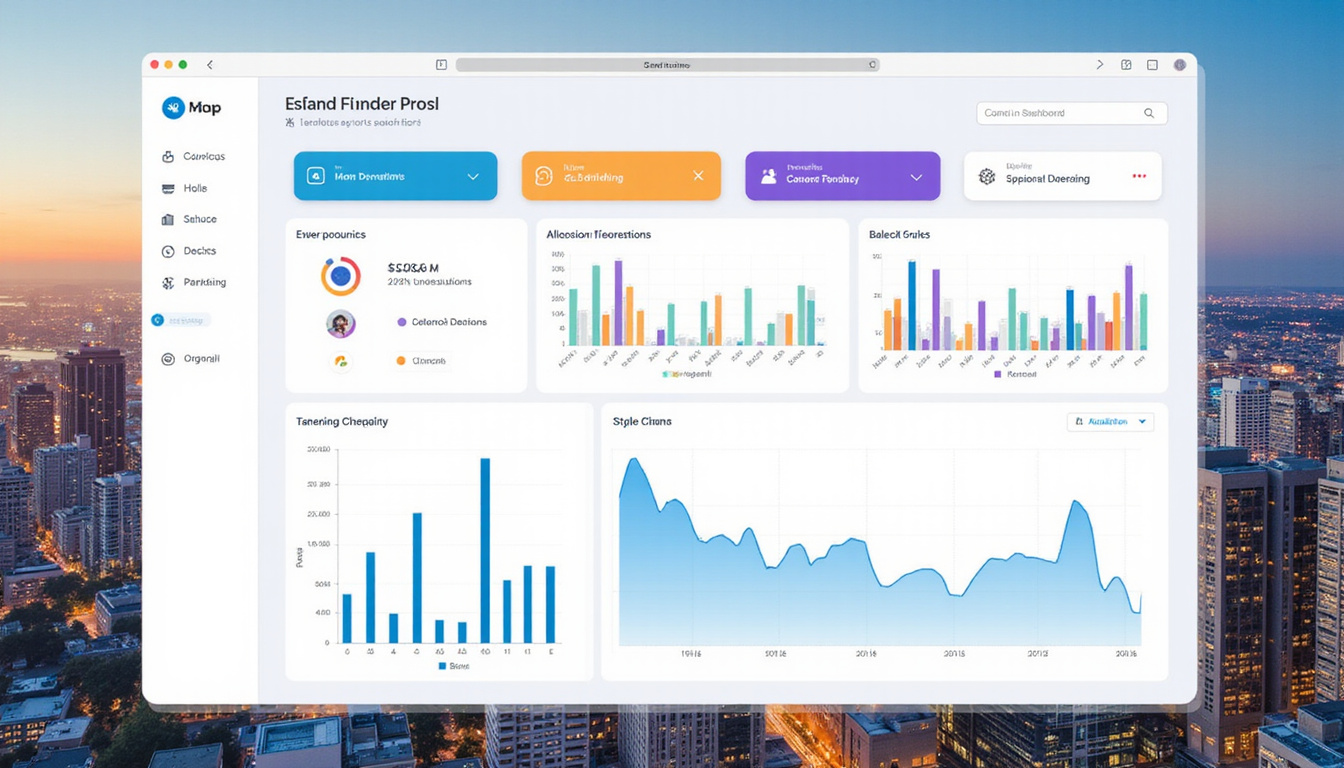In today’s market, real estate portfolio management is a key tool for good returns. Investors, whether experienced or new, see that managing properties well shifts outcomes from simple gains to faster wealth growth. This guide shows time-tested ways to work with your properties, cut risks, and gain from market chances.
Understanding Real Estate Portfolio Management
Real estate portfolio management means you watch over many property assets. You set clear aims like steady income, growing value, and spreading risk. You check assets often, make clear choices, and adjust when the market changes. Good management builds a mix of investments that match your money goals.
Why Real Estate Portfolio Management Matters
A well-run portfolio can boost cash flow, cut empty periods, lift property values, and keep risks in check. On the other hand, bad management can miss chances, raise costs, and lower value. By checking how each property does, you can put money where it works best and keep steady progress.
Key Strategies for Optimizing Your Real Estate Portfolio
To win in real estate portfolio management, try these steps:
1. Mix Your Investments
Mixing cuts risk by spreading investments across different property kinds and areas. Think about owning houses, offices, and short-stay rentals in several locations. For example, owning both city apartments and suburban offices can give steady rent while balancing market ups and downs.
2. Hold Regular Portfolio Reviews
Review each asset often. Short checks with numbers like net operating income, tenant numbers, and value gains can show which properties need change or sale.
3. Keep Up with Market Studies
Watch market trends, economic signs, and local changes. New shifts in supply and demand can show when to buy or sell. Use online property tools or ask local experts for clear views.
<  >
>
4. Focus on Property Management
Good property care makes tenants happy. Quick fixes, on-time rent collection, and clear talks help a lot. Hiring skilled managers or using modern management tools can keep tasks simple.
5. Plan for Tax and Money
Set up your investments to earn tax benefits like depreciation and tax exchanges. Work with money experts to reduce tax bills while keeping your plan on track.
6. Use Modern Data Tools
Today’s management platforms show clear charts, follow performance, and even suggest trends. These tools help you see changes quickly and act in time.
7. Balance Borrowing and Own Money
A smart mix of loans and own money can buy more properties. Borrowing can boost gains but may add risk. Keep a good balance that fits with your risk level and what the market shows.
Checklist: Best Practices for Real Estate Portfolio Management
- Set clear money goals and time plans
- Mix property kinds and areas
- Check details before buying new assets
- Watch asset progress and market shifts
- Hire strong property managers
- Plan your money and taxes smartly
- Keep up with new tech and tools
- Adjust asset mix when conditions change
Frequently Asked Questions (FAQs)
What is the best way to start real estate portfolio management?
Start with clear money goals and solid market studies. Set a budget, pick your property types, and plan a mix of assets. Keep a close watch and ask experts when needed.
How can I cut risks in my real estate portfolio management?
Spreading investments among different kinds and places cuts risks. Regular checks and quick moves on weak areas also help stop losses.
How important is modern technology in managing a real estate portfolio?
Tech matters a lot. It provides clear reports, data-based ideas, and smooth property care. Special software helps you watch over assets and raise returns.
Conclusion
Good real estate portfolio management is a tool for strong returns in the property market. By mixing investments, checking properties often, using market data, and modern data tools, investors turn market challenges into clear gains. Whether your aim is to grow wealth, get steady income, or keep money safe for the long run, solid management puts you on the path to success.
Are you ready to improve your real estate investments? Start putting these steps to work now and watch your portfolio grow. For more tips and expert views, visit National Real Estate Investor and keep a step ahead of market moves.
Related Videos
- Expert Tips for Egypt Tours Real Estate Investment
- Nile Cruise Properties: Investing by the Waterfront
- Hurghada Excursions and Real Estate Opportunities
- Cairo Day Trips: Discover Real Estate Hotspots
These videos show how these ideas fit with new property markets, such as Egypt’s busy tourist spots.
[center]
[/center]

